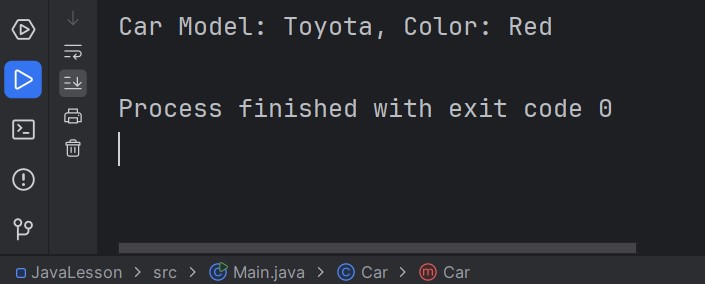In this tutorial we want to learn about Java OOP vs Procedural Programming, so as we know that Java is powerful and popular programming language and it supports multiple programming paradigms, we can use Java in Object Oriented Programming or OOP, and also we can use Java in procedural programming. the two paradigms have their own strengths and weaknesses, so it will be the best idea to choose the right and best approach for your project.
Object Oriented Programming
Object Oriented Programming is a programming paradigm in which object concepts are at the core. object represents the instance of a class that stores data and behavior. all Java items are objects, and there is a set of attributes and methods for each object. and in this approach code reuse and modularization is one of the most important advantages of OOP. because using this approach you can create code one time and use it in a number of parts of your program. also OOP level of abstraction enables the design and management of complicated systems more easily.
This is an example of OOP in Java
|
1 2 3 4 5 6 7 8 9 10 11 12 13 14 15 16 17 18 19 20 21 22 23 24 |
// Class definition class Car { String color; String model; // Constructor Car(String color, String model) { this.color = color; this.model = model; } // Method to display car details void displayDetails() { System.out.println("Car Model: " + model + ", Color: " + color); } } public class Main { public static void main(String[] args) { // Creating an object of Car class Car car1 = new Car("Red", "Toyota"); car1.displayDetails(); } } |
In this example, we have defined a Car class with attributes and methods. After that we creates an instance of Car and use its method to display details.
This will be the result

Procedural Programming
Ok so now let’s talk about procedural programming, procedural programming is a type of programming paradigm that focuses on procedures and instructions which are intended to carry specific tasks. program is a collection of procedures to be performed in sequential order. we can say that procedural programming is easy and straightforward, it is a great option for the beginners, because you can learn and understand it easily. also the projects that have a linear execution process are more suited to procedural programming.
This is an example of procedural programming in Java
|
1 2 3 4 5 6 7 8 9 10 11 12 13 |
public class Main { // Procedure to display car details static void displayCarDetails(String model, String color) { System.out.println("Car Model: " + model + ", Color: " + color); } public static void main(String[] args) { // Calling the procedure String carModel = "Toyota"; String carColor = "Red"; displayCarDetails(carModel, carColor); } } |
Differences between OOP and Procedural Programming
Now let’s talk about the difference between these two, so the primary difference between OOP and procedural programming is that OOP is centered around objects, but procedural programming is centered around procedures. in OOP you define classes and objects and after that use those objects to execute methods. in procedural programming, you define procedures and then call those procedures to execute code.
Another key difference is this that OOP is more modular and easier to maintain. by using OOP you can encapsulate data and behavior in classes, and you can easily manage and modify. in procedural programming our code is more tightly coupled, and it is harder to modify and maintain the code.
Which Approach is Good?
Now let’s talk that which approach is good for us, when you want to select an approach for your project than there is no good answer to this, because the best approach depends on the nature of your project and your development team expertise. if you have a large and complex project then OOP is will be the better choice. because OOP modularity and code reuse make it easier to manage and modify large projects.
On the other hand, if your project is small and has linear flow of execution, then procedural programming may be the better choice. because Procedural programming is simpler and easier to learn, and this makes it a good choice for small projects and beginner programmers.
Subscribe and Get Free Video Courses & Articles in your Email